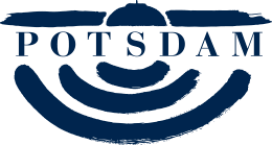The Max Planck Institute of Colloids and Interfaces was founded in 1992, moved to its present location at the "Research Campus Golm" in May 1999, and has four departments - Biomaterials, Colloid Chemistry, Interfaces, and Theory.
Research on colloids and interfaces deals with structures measured in sizes between nanometers and micrometers which, while much bigger than atoms, are at the same time clearly smaller than the macroscopic items we can see directly with our eyes. For a long time, this mesoscopic intermediate range was a "world of lost dimension" and waited in the dark to be discovered. Today, we know this multi-faceted and relatively new field often consists of very complex structures.
Colloids are small entities and possess a high surface-to-volume ratio. Their properties are therefore determined largely by surface. They are ubiquitous in life, e.g. in cells, blood or milk, but also in the technical world such as in paints, inks, displays, drugs, cement, etc.
There are two ways to approach research in this mesoscopic range. On the one hand, we can step down from our familiar macroscopic world into smaller and smaller dimensions, and on the other hand, we can approach the world of colloids from small molecules which are put together to form larger and larger structures.
Since colloids and interfaces play a major role both in organic and inorganic nature, the research on colloids and interfaces is a broad, interdisciplinary field of research. It is hardly possible to carry out sophisticated developments in this very complex field armed only with the knowledge of one subject. On the super-molecular level, the lines between physics, chemistry, and biology become blurred. Hence, an important aspect of the basic research is the clarification of the general natural laws, upon which the building of structures and the self-organization of these systems is based.
The Max Planck Institute of Colloids and Interfaces is actively engaged in academic teaching and education. In order to support and enhance its activities on biomimetic systems, and to improve the training of young researchers in this emerging field, the MPIKG has created the International Max-Planck Research School on Biomimetic Systems (www.imprs.org), now complemented by a Marie-Curie Early Stage Training Network (www.biomimeticsystems.de). The school is supported by the Max Planck Society and the State of Brandenburg. The program lasts three years, can take on up to 20 students every year, and leads to a doctor's degree in physics, chemistry, or biology.
Address:
Max-Planck-Institut für Kolloid- und Grenzflächenforschung
Wissenschaftspark Golm
Am Mühlenberg 1
14476 Potsdam OT Golm
Germany
E-Mail
